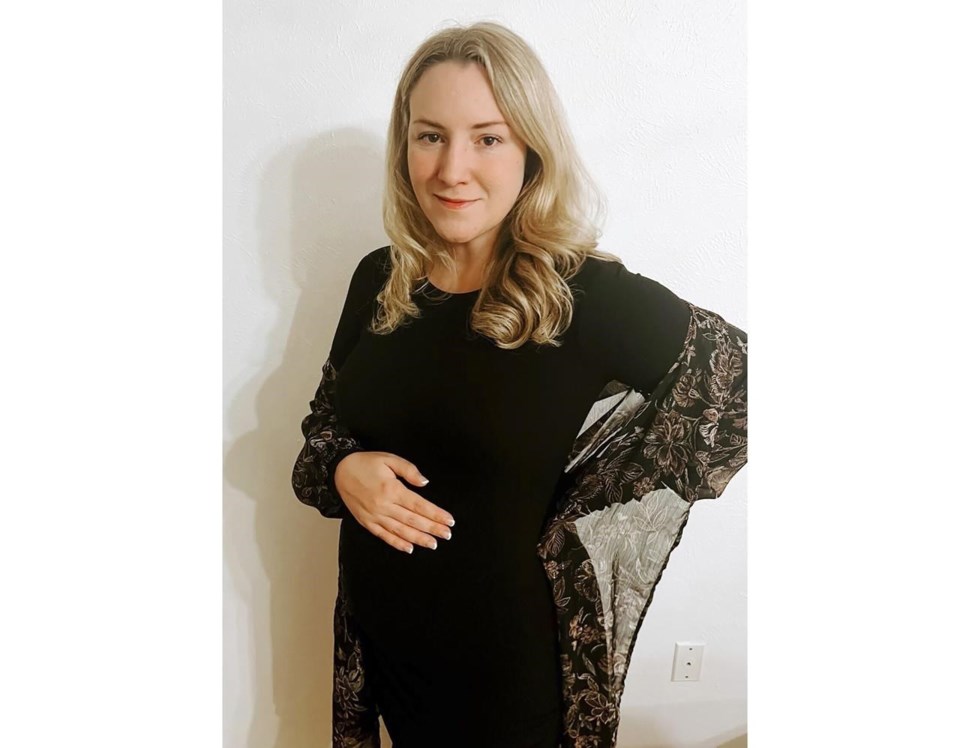AUSTIN, Texas (AP) — A Texas judge on Thursday gave a pregnant woman whose fetus has a fatal diagnosis permission to get an abortion in an unprecedented challenge over bans that more than a dozen states have enacted since Roe v. Wade was overturned.
The lawsuit by Kate Cox, a 31-year-old mother of two from the Dallas area, is believed to be the first time since the landmark U.S. Supreme Court decision last year that a woman has asked a court to approve an abortion. The order only applies to Cox and her attorneys afterward spoke cautiously about any wider impacts, calling it unfeasible that scores of other women seeking abortions would also now to turn to courts.
“This can't be the new normal,” said Marc Hearron, an attorney for the Center for Reproductive Rights. “I don’t think you can expect to see now hundreds of cases being filed on behalf of patients. It's just not realistic.”
State District Judge Maya Guerra Gamble, an elected Democrat, granted a temporary restraining order allowing Cox to have an abortion under what are narrow exceptions to Texas' ban. Her attorneys said they would not disclose what Cox was planning to do next, citing safety concerns.
Republican Texas Attorney General Ken Paxton, whose office argued that Cox does not meet the criteria for a medical exception, issued a statement that did not say whether the state would appeal. But in a letter to three Houston hospitals, Paxton warned that legal consequences were still possible if Cox's physician provided the abortion.
Cox, who is 20 weeks pregnant, attended the hearing via Zoom along with her husband but did not address the court. Doctors have told Cox that if the baby’s heartbeat were to stop, inducing labor would carry a risk of a uterine rupture because of her prior cesareans sections, and that another C-section at full term would would endanger her ability to carry another child.
“The idea that Ms. Cox wants so desperately to be a parent and this law may have her lose that ability is shocking and would be a genuine miscarriage of justice," Gamble said.
The Center for Reproductive Rights, which is representing Cox, has said this lawsuit is believed to be the first of its kind since Roe v. Wade was overturned. Since that landmark ruling, Texas and 12 other states rushed to ban abortion at nearly all stages of pregnancy. Opponents have sought to weaken those bans, including an ongoing Texas challenge over whether the state's law is too restrictive for women with pregnancy complications.
“I do not want to continue the pain and suffering that has plagued this pregnancy or continue to put my body or my mental health through the risks of continuing this pregnancy,” Cox wrote in an editorial published in The Dallas Morning News. “I do not want my baby to arrive in this world only to watch her suffer.”
The temporary restraining order stops Texas from enforcing the state's ban on Cox and lasts for 14 days. Under the restrictions in Texas, doctors who provide abortions could face criminal charges that carry a punishment of up to life in prison. They could also be fined. Pregnant women cannot be criminally charged for having an abortion in Texas.
Paxton told the Houston hospitals the order “will not insulate you” from civil and criminal liabilities, arguing that private citizens could still bring lawsuits and local prosecutors could still bring charges.
Seth Chandler, a law professor at the University of Houston, said he would have concerns as a physician based on both legal issues and Paxton's “apparent zeal” to enforce the state's abortion ban.
“If I were one of the doctors involved here, I would not sleep easy performing that abortion,” he said.
Although Texas allows exceptions under the ban, doctors and women have argued that the requirements are so vaguely worded that physicians still won't risk providing abortions, lest they end up facing criminal charges or lawsuits.
State officials had asked Gamble to deny the request, arguing that Cox has not shown her life is in imminent danger and that she is therefore unable to qualify for an exception to the ban.
The decision was handed down just two days after Cox filed the lawsuit.
Cox learned she was pregnant for a third time in August and was told weeks later that her baby was at a high risk for a condition known as trisomy 18, which has a very high likelihood of miscarriage or stillbirth and low survival rates, according to the lawsuit.
The termination of pregnancies because of fetal anomalies or other often-fatal medical problems is seldom discussed in national debates over abortion. There are no recent statistics on the frequency of terminations for fetal anomalies in the U.S. but experts say it's a small percentage of total procedures.
The lawsuit was filed a week after the Texas Supreme Court heard arguments about whether the ban is too restrictive for women with pregnancy complications. That case is among the biggest ongoing challenges to abortion bans in the U.S., although a ruling from the all-Republican court may not come for months.
Paul J. Weber, The Associated Press




